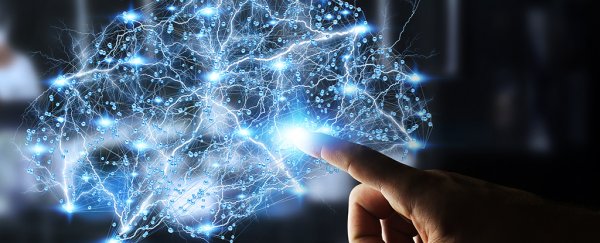Neural implants that claim to boost memory function aren't new, but a novel approach to the problem has led to a device that listens to the brain before responding.
This 'closed loop' method of deep brain stimulation has already shown that it can improve the recall of a list of words in volunteers by 15 percent, a leap that could one day help improve the quality of life for those with degenerative neurological conditions such as Alzheimer's disease.
To test their device, a team of scientists led by researchers from the University of Pennsylvania and Thomas Jefferson University recruited 25 patients undergoing clinical monitoring for epilepsy.
Their choice of test subjects was more a matter of ethics and convenience than anything – both the device and the monitoring process require inserting fine probes into the brain, a procedure that would be too risky for a mere clinical trial.
By fine tuning the electrical activity of the probes, the scientists aimed to activate key components of the brain's memory network only when it struggled to store memories, but not when it was working fine.
The basic concept itself of boosting memorisation and recall through neural stimulation is old ground.
Neuroscientists have gradually progressed from using non-invasive Transcranial Magnetic Stimulation techniques to deep brain stimulation in an effort to tickle the right pathways and encourage the brain to store and reconnect with memories.
While there have been encouraging successes by precisely targeting areas such as the hippocampus and medial temporal lobes, the results haven't always been consistent.
Part of the problem could be the choice of location, but another issue could be the method. Past efforts have used what's called an open loop system, meaning the stimulation wasn't tweaked in response to the brain's activity.
This new device was instead based on a closed loop, which varied the electrical stimulation based on feedback decoded from the neural activity in a part of the brain called the lateral temporal cortex.
The researchers studied the individual pattern of brain activity of each subject at rest and as they memorised a list of words.
In follow up sessions, they stimulated the lateral temporal cortex whenever the system's feedback told them the volunteer had a low probability of successfully recalling a word based on how they were memorising it.
In some ways, this new way of stimulating the brain works like a pacemaker; sensors 'listen' to what's going on before acting, stimulating the tissue only when necessary.
If you're curious as to what this memory-reinforcing kick might feel like, there's nothing to it.
"I remember doing the tests, and enjoying it," study participant David Mabrey told The New York Times.
"But I could not honestly tell how the stimulation was affecting my memory. You don't feel anything; you don't know whether it's on or off."
Ideally, the research could be used to help dementia patients by picking up their failing memory as it degenerates. But the idea of decoding neural activity and then responding with stimulation could have applications for many neurological conditions.
"Now that the technology is out of the box, all sorts of neuro-modulation algorithms could be used in this way," said University of Pennsylvania psychologist and senior author of the study, Michael Kahana.
In the future, the researchers intend to investigate how the closed-loop method works on the recall part of the memory process, reconnecting with established memories that are just out of reach.
If you're after a bit of a pick-up while cramming an exam, sorry to say this technology isn't for you. At least, not any time soon.
Getting the probes to sit where they're needed is a delicate operation, meaning it would only be risked in worst-case scenarios where medication or other treatments have failed.
But for some people suffering the effects of dementia, a pacemaker for the brain could significantly improve their quality of life and give them a few more years of better recall.
This research was published in Nature Communications.
